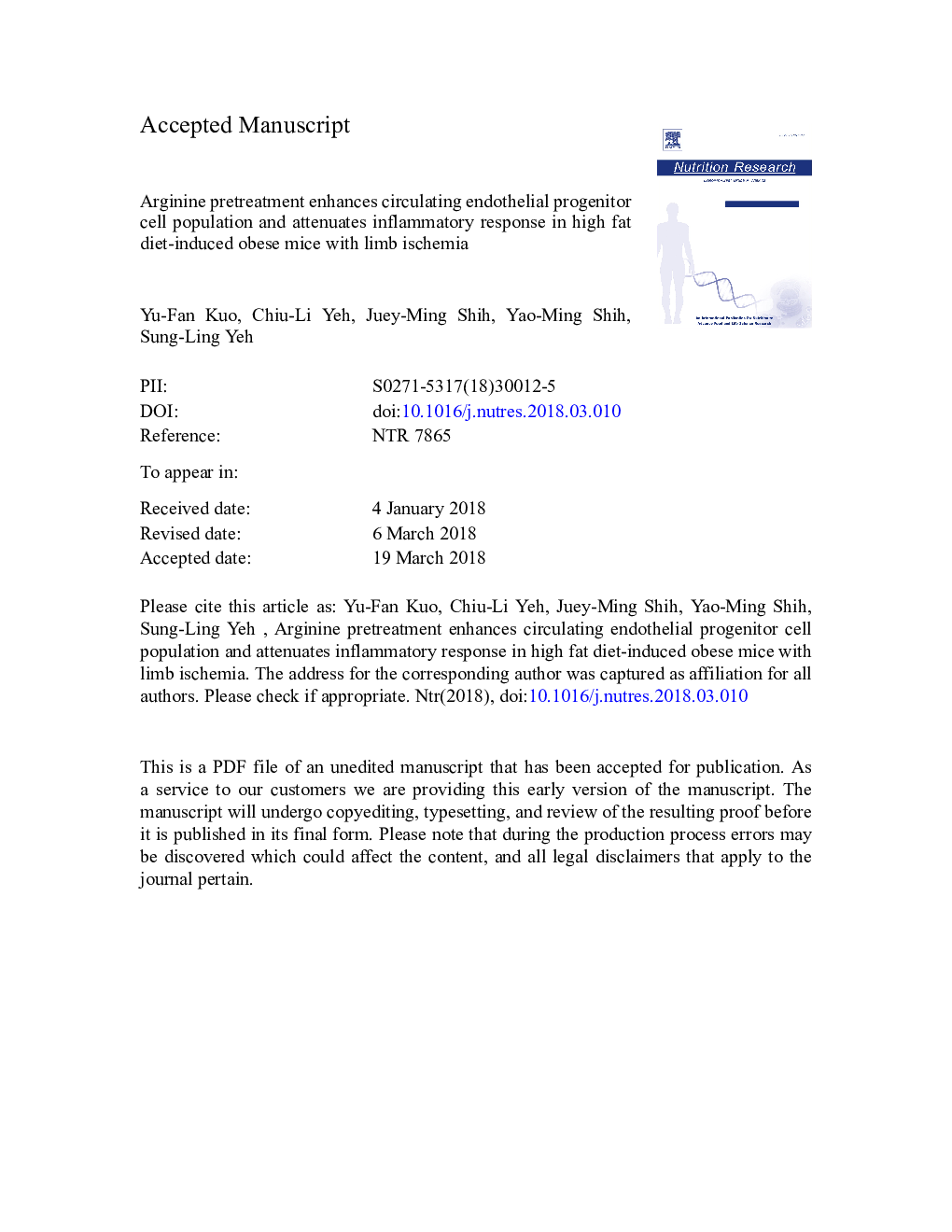| Article ID | Journal | Published Year | Pages | File Type |
|---|---|---|---|---|
| 8634181 | Nutrition Research | 2018 | 31 Pages |
Abstract
Obesity is a global health problem with an up-regulated inflammatory reaction. Obesity-induced endothelial progenitor cells (EPCs) dysfunction is associated with vascular complications that may contribute to critical limb ischemia. Arginine (Arg) is an amino acid with immune-modulatory property and has been found to promote EPCs mobilization in disease conditions. Thus in the present investigation, we hypothesized that arginine given to a murine model of diet-induced obesity would increase circulating EPCs and mitigate the inflammatory reactions in response to limb ischemia. Mice were divided into normal group (NC), high-fat group (HC), and high-fat Arg group (HA). Mice in the HC group were fed with a diet containing 60% energy as fat for 8 weeks, while HA group were initially fed with the same high-fat diet for 4 weeks and later shifted to a high-fat diet enriched with 2% Arg for the remaining 4 weeks. Then mice in the HC and HA groups underwent ischemic operations and were euthanized at either day 1 or day 7 after limb ischemia. The results showed that, compared to the ischemic HC group, the ischemic HA group had higher circulating EPCs at day 1 post-ischemia and higher muscle stromal cell-derived factor-1 and interleukin (IL)-10 mRNA expressions at day 7 after ischemia. In contrast, plasma leptin concentration and expressions of IL-1β and tumor necrosis factor-α mRNAs by adipocytes were down-regulated. These findings suggest that obese mice treated with Arg-containing high-fat diet enhanced circulating EPCs percentage and attenuated inflammatory reaction in response to limb ischemia.
Keywords
EPCsMCP-1ICAM-1SDF-1MMP-9ECsArginineArginflammationLimb ischemiainterleukintumor necrosis factor-αEndothelial progenitor cellsEndothelial cellsstromal cell-derived factor-1Vascular endothelial growth factorVascular Endothelial Growth Factor (VEGF)TNF-αmatrix metallopeptidase-9ObesityNitric oxidemonocyte chemoattractant protein-1
Related Topics
Life Sciences
Biochemistry, Genetics and Molecular Biology
Endocrinology
Authors
Yu-Fan Kuo, Chiu-Li Yeh, Juey-Ming Shih, Yao-Ming Shih, Sung-Ling Yeh,
